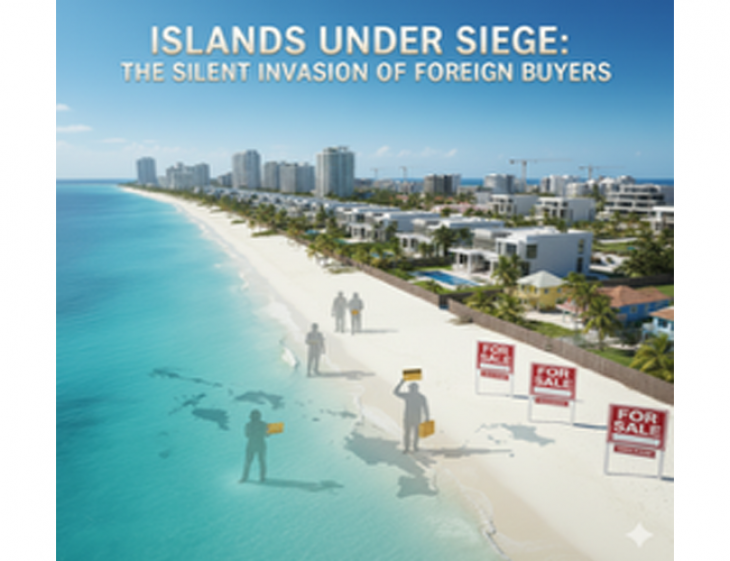
By Publisher Ray Carmen
The Caribbean has long been a sanctuary for sun, sand, and serenity. But beneath the turquoise waters and swaying palms, a quiet transformation is taking place. Foreign investors—from Europe, the Middle East, and Asia—are snapping up prime land, historic estates, and luxury resorts at a pace few could have imagined.
A Quiet Takeover
What was once an idyllic escape is now a high-stakes real estate playground. Billionaires, hedge funds, and even foreign governments are acquiring property on Caribbean islands, sometimes entire resorts or private isles. While investment brings development, it also raises questions: who truly owns the Caribbean, and who benefits from its wealth?
Impact on Locals
For local communities, the effects are palpable. Skyrocketing property prices make homeownership impossible for many. Small businesses struggle to compete as the tourism landscape caters increasingly to ultra-luxury visitors. Cultural landmarks are privatized, and traditional ways of life are disrupted, leading to growing resentment among local populations.
Economic Balancing Act
Governments face a delicate dilemma: foreign investment fuels infrastructure, jobs, and tourism, yet uncontrolled acquisitions threaten sovereignty, social cohesion, and affordability. Policymakers are experimenting with regulations, taxes, and ownership caps—but enforcement remains a challenge.
Global Players, Regional Stakes
From Beijing to Dubai, investors are betting on Caribbean stability, natural beauty, and high returns. Some see it as a safe haven in a volatile world; others worry about the geopolitical implications. National security experts are increasingly monitoring ownership of strategic coastal lands, ports, and islands.
Looking Ahead
The Caribbean’s allure is undeniable, and investment is inevitable. The key question is whether the region can channel this influx to benefit its people, culture, and environment—or risk becoming a playground for outsiders at the expense of locals. This silent invasion is reshaping not just landscapes, but the very soul of the Caribbean.




